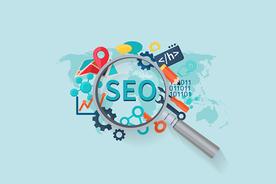
The modern business landscape is undeniably shaped by the digital realm. With the proliferation of internet usage and the ever-increasing reliance on technology, it comes as no surprise that digital marketing has become a pivotal component of any comprehensive business strategy. But which industries are leading the charge when it comes to investing in digital marketing? This comprehensive analysis aims to shed light on this question, providing insights into the sectors that are pouring the most resources into digital campaigns, the strategies they employ, and the potential returns on their investments.
To begin with, it's essential to understand the scope and significance of digital marketing. This form of marketing encompasses a wide array of tactics, from search engine optimization (SEO) and pay-per-click (PPC) advertising to content marketing, social media campaigns, email marketing, and more. Digital marketing offers unparalleled reach, precision targeting, and measurability, making it an attractive option for businesses across all sectors.
One of the industries that stands out for its substantial investment in digital marketing is the technology sector itself. Companies such as Apple, Google, and Microsoft are known to spend billions of dollars annually on digital marketing efforts. Their marketing strategies often revolve around showcasing product innovations, engaging with consumers through various digital platforms, and leveraging data analytics to refine their campaigns. These tech giants set trends that smaller companies within the industry emulate, creating a domino effect where significant digital marketing budgets become the norm.
Another industry that heavily invests in digital marketing is retail. With the rise of e-commerce, retailers have had to adapt their marketing strategies to compete in the online space. This adaptation includes everything from optimizing websites for mobile devices to using social media influencers to promote products. Retail giants like Amazon and Alibaba have perfected the art of digital marketing, integrating sophisticated algorithms to personalize user experiences and drive sales.
The healthcare industry also ranks high in terms of digital marketing expenditure. As regulations evolve and consumer expectations shift towards more digital interactions, healthcare providers are turning to digital marketing to enhance their online presence, educate patients, and promote their services. From SEO-optimized content that answers health-related queries to social media campaigns that foster patient engagement, healthcare marketers are finding innovative ways to connect with their audiences.
Financial services, too, are major players in the world of digital marketing. Banks, insurance companies, and other financial institutions invest heavily in online advertising, customer relationship management (CRM) systems, and digital tools that help them analyze market trends and customer behavior. The goal is to stay competitive, build trust, and offer personalized financial solutions to customers who increasingly expect digital convenience.
Education is another sector that has seen a surge in digital marketing activity. With the advent of online learning platforms and the globalization of education, institutions are using digital marketing to attract students from around the world. This includes virtual tours of campuses, social media campaigns, and targeted ads that reach prospective students where they spend most of their time online.
Travel and hospitality businesses have also been quick to embrace digital marketing. With travel-related decisions often starting with online research, these companies utilize a variety of digital channels to promote destinations, hotels, flights, and experiences. They leverage geolocation services, social media influencers, and VR experiences to create engaging campaigns that inspire potential travelers to book their next adventure.
Finally, the automotive industry has stepped up its digital marketing game to keep pace with changing consumer preferences. Car manufacturers are using digital platforms to showcase new vehicles, offer virtual test drives, and engage with consumers through online forums and social media. Digital marketing allows them to target specific demographics, provide valuable information, and build brand loyalty in a competitive market.
In conclusion, the industries that spend the most on digital marketing share common goals: to remain competitive, reach target audiences effectively, and capitalize on the many benefits that digital marketing provides. From technology and retail to healthcare, finance, education, travel, and automotive, these sectors are not only investing heavily in digital marketing but are also constantly innovating their strategies to maximize their return on investment. As digital continues to dominate the marketing landscape, it is clear that those who invest wisely in digital marketing will be the ones to capture the lion's share of consumers' attention and loyalty.
评论列表 (0条)